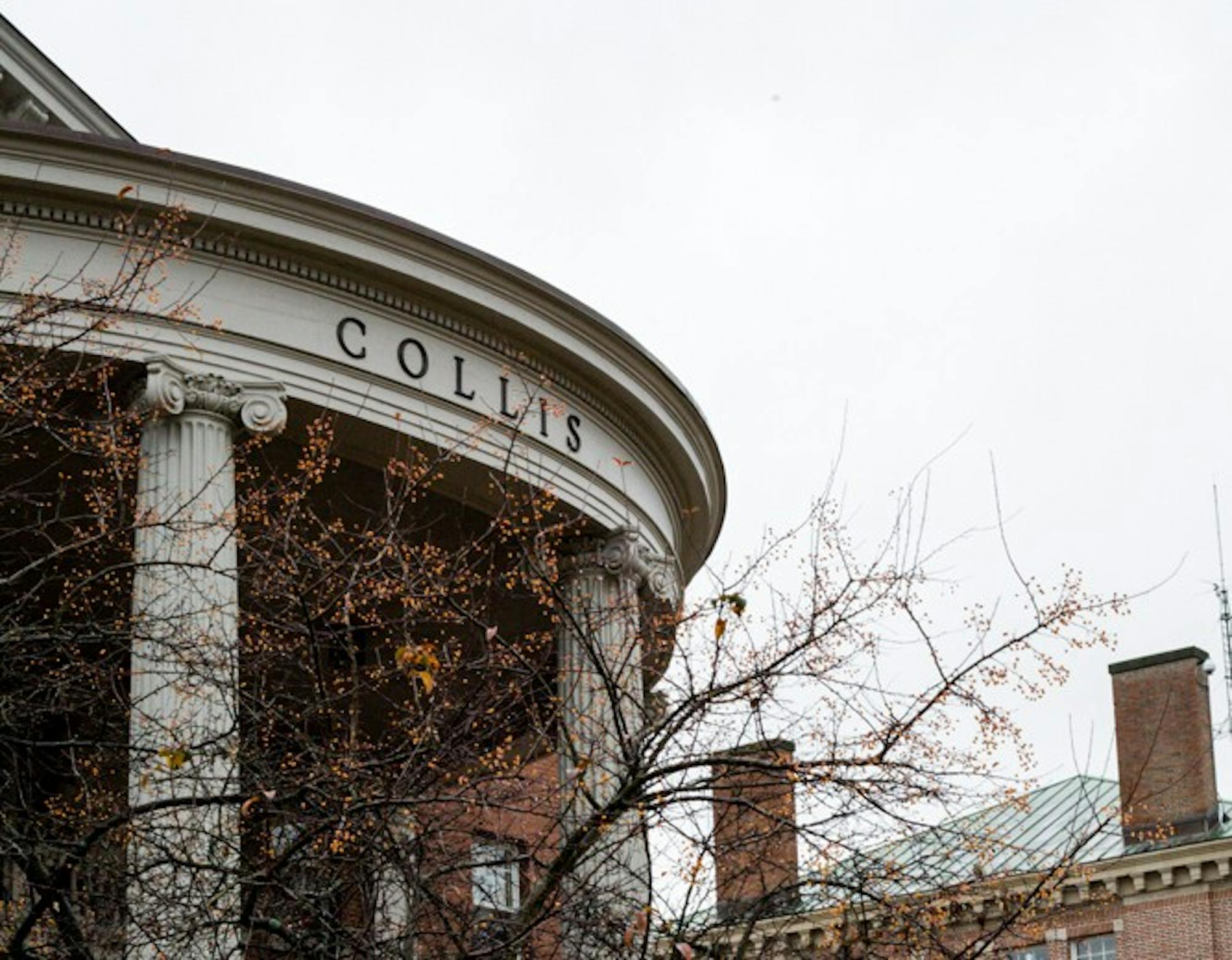On Oct. 20, the Dartmouth Student Government Senate met for its fifth weekly meeting of the fall term. Led by student body president Chukwuka Odigbo ’25, the Senate discussed a potential amendment to its constitution, library hour extensions and the upcoming Healthy Minds survey.
Representative Daniel Pruder ’27 proposed an amendment to the DSG constitution that would allow senators to nominate acting senators — any other undergraduate student — to vote in their place during prolonged absences, such as an off term.
The amendment failed to pass with 10 members voting against the amendment, one voting in favor and one abstaining.
Pruder said he anticipates that DSG members will take simultaneous off-terms this year due to the number of sophomore and junior senators. The amendment would “fill [temporary] vacancies” and promote “accountability” by representing students whose elected officials are absent, Pruder said.
Senator Sabik Jawad ’26 spoke in support of the amendment but suggested that the student body president should approve acting senators rather than a Senate vote, as Pruder had proposed.
“I’m just worried about situations similar to last spring [where] there’s a lot of factionalism,” he said. “Different groups might try to block another senator’s appointment.”
Senator Favion Harvard ’26 disagreed with the proposed amendment, noting that it could create “confusion” within DSG.
Laurel Hamilton ’26 presented concerns that the amendment was “undemocratic” because it would result in senators “electing [their] friend.”
“We shouldn’t be able to just choose who we want to be in the position,” Harvard said. “It should be a formal or at least the housing community’s [decision].”
The amendment may be reintroduced at a later date with changes to its wording, according to student body vice president Jonathan Pazen ’25. A committee of DSG members are working to correct “contradictory” wording in the DSG constitution, according to Odigbo.
DSG members and student attendees also discussed recent changes to library hours and plans to improve study space access for students. The library will now remain open until midnight on Friday and Saturday, instead of the 10 p.m. closing time instated at the start of the fall, according to past reporting by The Dartmouth.
Rai-Ching Yu ’27 — who started a petition for longer library hours that received 647 signatures — said dean of libraries Sue Mehrer cited data on student usage of library spaces at night and staffing issues to explain why library hours were shortened.
“They [said] on average, it’s only 50 students using the library at those hours and … [Reiss Hall] and Novack and [the 1902 Room] can fit like 100 students,” Yu said. “They [don’t] really realize the impact on students [and] how those are not very productive spaces.”
Senator Samay Sahu ’27 said he proposed extending hours for the Orozco Mural Room to later than its current 12 a.m. closing time to the Council on the Libraries, which assists in “strategic planning” for the library, according to the library website. The council would have to “look into that more” because the mural requires additional supervision due to its status as a United States National Historic Landmark, Sahu said. He added that other study spaces suggested for extended hours have also faced staffing issues.
“When it comes down to it, opening Berry [Library] for longer requires much more staffing,” Sahu said.
Yu explained that operation of each library space requires at least “two full-time library staff hires” per time slot, and hiring staff for late hours from the Upper Valley area is “iffy.”
Odigbo clarified that the current extension of the Tower Room’s hours to 2 a.m. is possible through a partnership with staff from Safety and Security, who “close” the room at the end of the night.
DSG members also discussed a plan to increase response rates on the upcoming Healthy Minds survey — a survey for undergraduate and graduate students addressing mental health and substance use status — by hosting a survey completion session with free food based on a similar initiative hosted by the Geisel School of Medicine Student Government, according to Pazen.

Jackson Hyde '28 is an intended philosophy major from Los Angeles, California. His interests include photography, meditation, and board game design.




